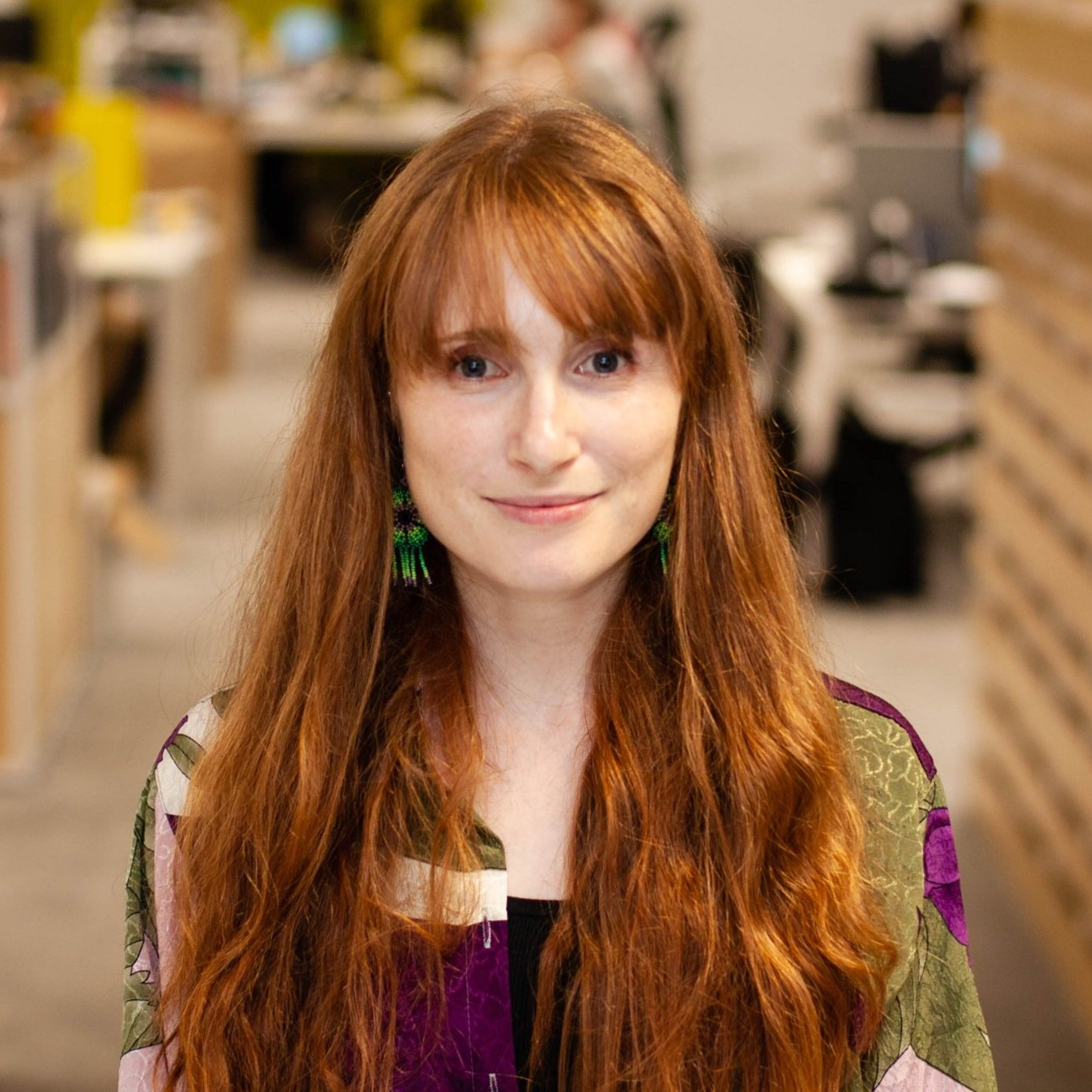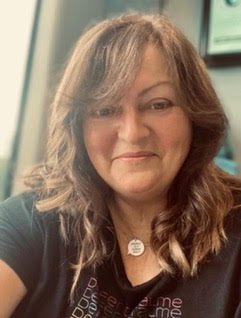Contributors
Dr. Abeba Birhane
Dr. Abeba Birhane is a cognitive scientist, currently a Senior Advisor in AI Accountability at Mozilla Foundation and an Adjunct Assistant Professor at the School of Computer Science and Statistics at Trinity College Dublin, Ireland. She researches human behaviour, social systems, and responsible and ethical AI – work for which she was recently featured in Wired UK and TIME on the TIME100 Most Influential People in AI list.
Rachel Coldicutt
Rachel Coldicutt is an expert on the social impact of new and emerging technologies, and executive director of research consultancy Careful Industries and its sister social enterprise Promising Trouble.
She was previously founding CEO of responsible technology think tank Doteveryone where she led influential and ground-breaking research into how technology is changing society and developed practical tools for responsible innovation. Prior to that, she spent almost 20 years working at the cutting edge of new technology for companies including the BBC, Microsoft, BT, and Channel 4, and was a pioneer in the digital art world. Rachel is an advisor, board member and trustee for a number of companies and charities and a member of the Ofcom Content Board. In 2019, Rachel was awarded an OBE in the New Year’s Honours for services for the digital society.
She is currently writing a book about careful innovation.
Anna Hamilos
Anna Hamilos is a passionate, empathic individual with an ability to lead agile innovation programmes that result in positive social impact. Relationship and partnership building has been at the heart of Anna's career from her work at the Greater London Authority, London 2012, CABE and Nesta. In 2021 Anna was selected for the prestigious Clore Experienced Leadership course.
Before joining Promising Trouble, Anna was a Senior Associate with Collaborate CIC. Prior to that Anna was the Head of Y Lab (Y Lab is Nesta's public service innovation lab for Wales). Anna led the design and delivery of major programmes - Infuse a WEFO funded initiative for the Cardiff Capital Region, the EdTech Innovation Programme, a joint venture with the Department for Education in addition to the DCMS funded Future News Pilot Fund (FNPF).
Mia Leslie
Mia is a Research Fellow at Public Law Project (PLP) with a focus on automation and digitalisation, immigration and equality. At PLP, she leads the investigatory research into government use of algorithms and automated decision-making systems and the tracking automated government (TAG) project, under which she developed and launched the TAG Register. She holds a LLB and LLM in International Law from the University of Leeds, where she was a recipient of the Liberty Scholarship. She has written for The Digital Constitutionalist, Free Movement, Prospect Magazine and Legal Action Magazine.
Dr. Chinasa T. Okolo
Dr. Chinasa T. Okolo is a Fellow at The Brookings Institution and a recent Computer Science Ph.D. graduate from Cornell University. Her research focuses on AI governance in the Global South, AI literacy upskilling, human-centered approaches to AI explainability, the future of data work, and leveraging AI to advance global health.
In addition to her work at Brookings, Dr. Okolo serves as a Consulting Expert with the African Union, contributing to the development of the AU-AI Continental Strategy on Africa, and as an Ethics Advisor to the Equiano Institute, a research lab focused on steering safe and trustworthy AI in Africa. Additionally, Dr. Okolo participates in the IEEE Standards Association working group on algorithmic bias and is a member of the ACM US Technology Policy Committee.
Dr. Okolo's work has been supported by numerous fellowships and covered in venues like VICE, Bloomberg, Newsweek, and VentureBeat, amongst others. Learn more about Dr. Chinasa T. Okolo at www.chinasatokolo.com.
Alexandra Sinclair
Alexandra Sinclair is a doctoral student at the LSE and a Research Fellow at the Public Law Project. Alexandra has an LLB with first class honours from Victoria University of Wellington and an LLM from Columbia Law School in New York City where she studied as a Fulbright Scholar. She has been published in the Modern Law Review and is a frequent contributor to the UK Constitutional Law Association Blog. She has also written for the UK immigration law blog Free Movement, the Law Society Gazette and Prospect Magazine. Her doctoral research focuses on how administrative law doctrines can be applied to automated decision-making by government.
Mary Towers
Mary Towers is an employment rights policy officer at the TUC. Supported by a trade union working group, Mary is leading a project at the TUC looking at the use of AI to manage people at work. Following research into the worker experience of technology being used in this way, the TUC has published a research report, legal report and manifesto with proposals for change, as well as guidance for trade union reps (https://www.tuc.org.uk/AImanifesto). With the help of a special advisory committee, the TUC is now working with Robin Allen KC and Dee Masters of Cloisters Chambers, as well as the Cambridge University Minderoo Centre for Technology and Democracy, to draft an AI and Employment Bill.
Mary began her career as an employment lawyer at a London law firm. She then went on to work as an in- house employment lawyer for an education trade union and after some time as an employment law writer, moved on to her current role at the TUC.
Unconference contributors
Aké Achi
Aké is a duo national, French and Ivorian citizen, who moved to the UK almost two decades ago. He holds a degree in diplomacy and a Master’s degree in International Human rights law. Aké is also a trainee solicitor and is the Founding Chief Executive of Migrants At Work, an award winning anti-state-sponsored trafficking organisation, campaigning to prevent human trafficking through legal migration routes.
Aké is the Winner of the Human Trafficking anti-slavery day award 2021 in the category‘Empowering survivors’ voice’. He was also nominated “Black Talent” 2023.
Aleks Berditchevskaia
Aleks Berditchevskaia is the Principal Researcher at Nesta's Centre for Collective Intelligence Design. She leads the team's research on how collective human intelligence and participatory methods can be used to improve the design and development of AI systems. In 2021 she co-authored a briefing paper on participatory AI for humanitarian response and collaborated with partners from the Nepal and Cameroon Red Cross to develop new tools for crisis response using participatory approaches.
Shaf Choudry
Shaf is the cofounder of The Riz Test and The Seen on Screen Institute. Shaf graduated in Computer Science and has over 15 years experience working in the tech industry.
He speaks regularly on the link between poor representation of Muslims in the Arts and it’s downstream effects on society and biased AI, which is the area of his PhD research. He sits on the British Film Institute Muslims on Screen Advisory Board and participated in the 2019 BAFTA Diversity Review. He was published in the book I Refuse to Condemn, and sits on the board of directors of Open Data Manchester.
Sahdya Darr
Sahdya is deeply invested in ‘how’ we do the work of building a better world and always has abolitionist and organiser Mariam Kaba’s ‘questions I regularly ask myself when I’m outraged about injustice’ in her mind. Since 2020, Sahdya has been looking at how technology disproportionately affects the rights of communities that are vulnerable, marginalised and minoritised. In her role at Open Rights Group, a UK-based digital campaigning organisation, she led the Migrant Digital Justice Programme. She is currently Coalition Coordinator for the Campaign to Stop Killer Robots and a Community Organiser with Data, Tech and Black Communities.
Gavin Freeguard
Gavin Freeguard is a freelance consultant working on research, policy and advocacy around data and AI policy and digital government. He is an associate at the Institute for Government (where he was previously programme director), policy associate at COnnected by Data, special adviser at the Open Data Institute, a member of the Public Digital network and has worked as a consultant for organisations including mySociety, the Ada Lovelace Institute and Full Fact.
Tracey Gyateng
Tracey Gyateng is one of the three volunteer stewards of Data, Tech & Black Communities (DTBC), a small not-for-profit community interest company (CIC) of diverse Black/Black heritage people working together to ensure data and data driven-technologies (e.g. AI) enhance Black lives, rather than curtail or surveil them. Her background is in quantitative social research and has spent the past 20 years of her career working in the charity and social sector across data science, criminal justice and health. She volunteers at TechSoup Connect London and is a director of Open Data Manchester.
Abdo Hassan
Abdelrahman (Abdo) Hassan is a creative technologist, AI strategist, Digital Anthropologist, and Poet based in Amsterdam. Currently working as a Digital Ethicist and Responsible AI Specialist at IKEA; He lives at the intersection of software, critical theory, data, and poetry. He has led many initiatives across industry, academia culture, and civil society to help build power-sensitive critical literacy of technological progress, In his latest project Everyday Data (H)activism, he explores the idea of joyful resistance through a community lead practice.
Louise Hickman
Louise Hickman is a Research Associate at the Minderoo Centre of Technology and Democracy at the University of Cambridge, where she uses ethnographic, archival, and theoretical approaches to consider how access is produced for disabled people. Her work focuses particularly on producing “real-time” access, namely on-demand services of accessible vehicles and delivery devices. She is also an Associate Fellow with the Digital Futures of Work, where she commissioned fiction work to explore accessibility from the perspective of access workers. Louise previously worked as a Senior Research Officer at the London School of Economics and Political Science Department of Media and Communications and Ada Lovelace Institute’s JUST-AI Network on Data and AI Ethics. She also co-convened JUST AI’s working group on rights, access and refusal and lab space on racial justice.
Maya Indira Ganesh
Maya Indira Ganesh is an Assistant Teaching Professor co-directing the MSt in AI, Ethics & Society, and a Senior Research Fellow at the Leverhulme Centre for the Future of Intelligence at the University of Cambridge. Maya earned a Drphil in Cultural Studies about the material-discursive shaping of AI, ethics, and autonomy in the context of the driverless car. Maya is also a speaker, cultural practitioner, curatorial advisor and writer specialising in media arts and technology. Between 2008-2017, Maya was a researcher working at the intersection of gender justice, technology, and digital freedom of expression with feminist NGOs and digital rights organisations in India, SE Asia, East Africa, and Europe.
Noortje Marres
Noortje Marres is the UK lead for the Shaping AI research project and has written books on material publics and digital sociology. She also contributed to Next 5 Minutes festival and the exhibitions Making Things Public (ZKM) and Nervous Systems: Quantified Life and the Social Question (HKW).
Will Perry
Will is a barrister who specialises in data protection and human rights law, including challenges against the use of AI and algorithmic decision making.
Jen Persson
Founder of the NGO Defend Digital Me. Campaigning for safe, fair and transparent use of data across England’s education sector. Co-authored the report Artificial Intelligence and Education: a critical view through the lens of human rights, democracy and the rule of law (2022) as member of the Council of Europe Digital Citizenship Working Group on AI and Education. As former Subject Matter Expert for the Council of Europe Committee on Convention 108+ Jen supported the drafting of Children’s Data Protection Guidelines in an Educational Setting adopted in November 2020.
Dama Sathianathan
Dama Sathianathan (she/her) is a partner at Bethnal Green Ventures (BGV), Europe's leading early-stage tech for good VC, backing ambitious founders using tech to tackle pressing social and environmental challenges at scale. At BGV, she leads on deal flow, community and networks, driving BGV's efforts to act with integrity on diversity, equity and inclusion and fuel the broader tech for good movement across the UK.
Dama previously worked for international NGOs advocating for better human rights practices in global development and humanitarian response and has a background in international relations and human rights.
Dama sits on the steering committee of VentureESG, the world's largest community of VCs and LPs stewarding better-shared learning and practices to integrate ESG and impact at the fund level and beyond. She's also a Trustee at Chayn, a non-profit building open-source products and services for survivors of gender-based violence and domestic abuse.
Eoin Rossney-Hyde
Eoin Rossney-Hyde is a GCSE student currently in Year 11 at Rathmore Grammar school, studying further maths, computing, geography, technology and design, English, French and double award science.
Madeleine Stone
Madeleine Stone is Senior Advocacy Officer at Big Brother Watch, where she works on surveillance technology, biometrics and AI. She has worked with a range of organisations that promote privacy and freedom of expression in the UK and globally, including English PEN, Index on Censorship, and Lawyers Without Borders. She received an MA in Human Rights Law from SOAS, where she specialised in counter-terrorism policy, surveillance, and the right to privacy.
Jeni Tennison
Jeni is the founder of Connected by data, a campaign that aims to put community at the centre of data narratives, practices and policies. She is co-chair of GPAI’s Data Governance Working Group, adjunct Professor at Southampton’s Web Science Institute, Associate Researcher at Cambridge’s Bennett Institute for Public Policy, and a Shuttleworth Foundation Fellow. She sits on the Boards of Creative Commons, the Global Partnership for Sustainable Development Data and the Information Law and Policy Centre. She was CEO of the Open Data Institute. She loves Lego and is the proud co-creator of the open data board game, Datopolis.


















